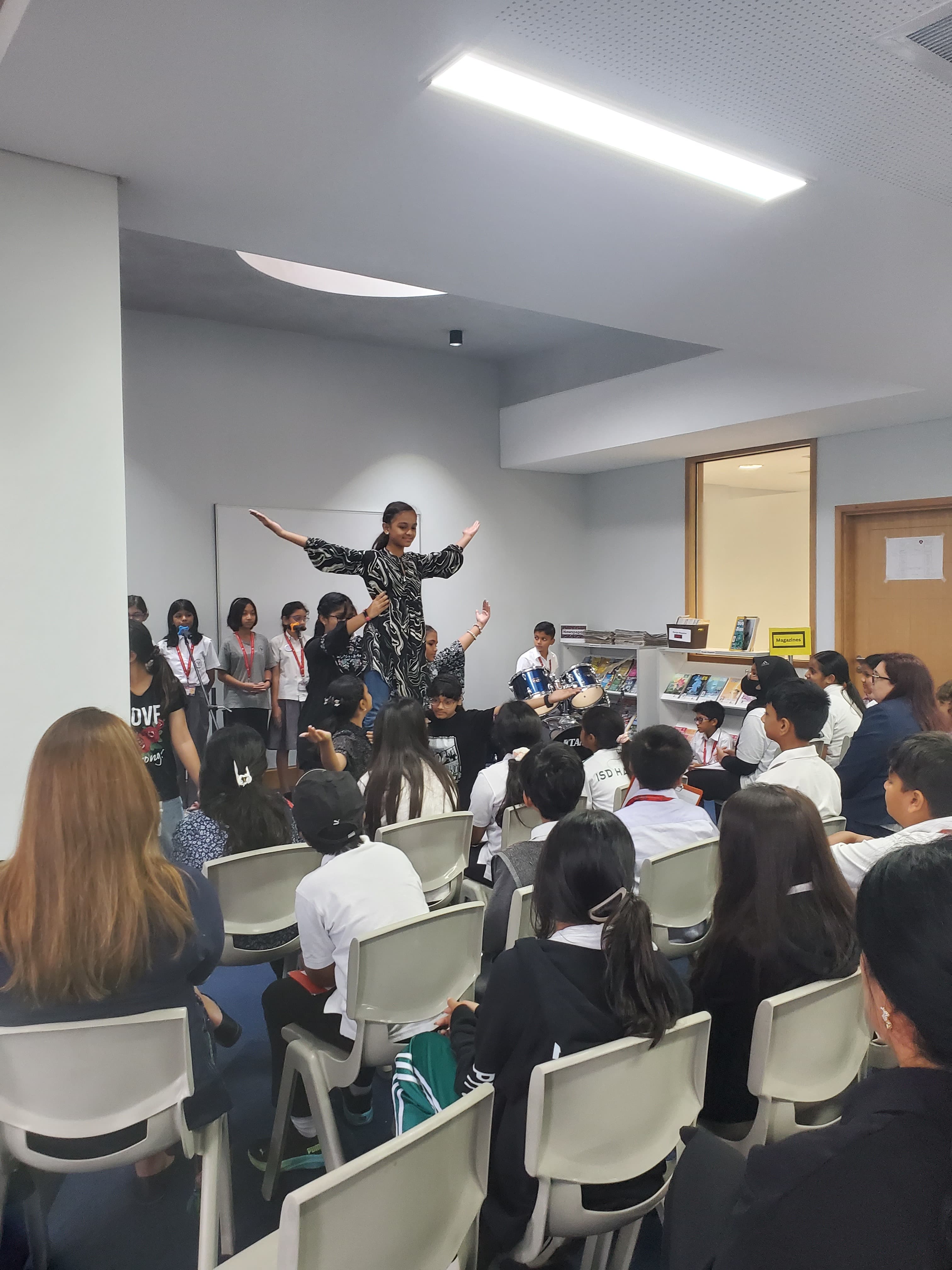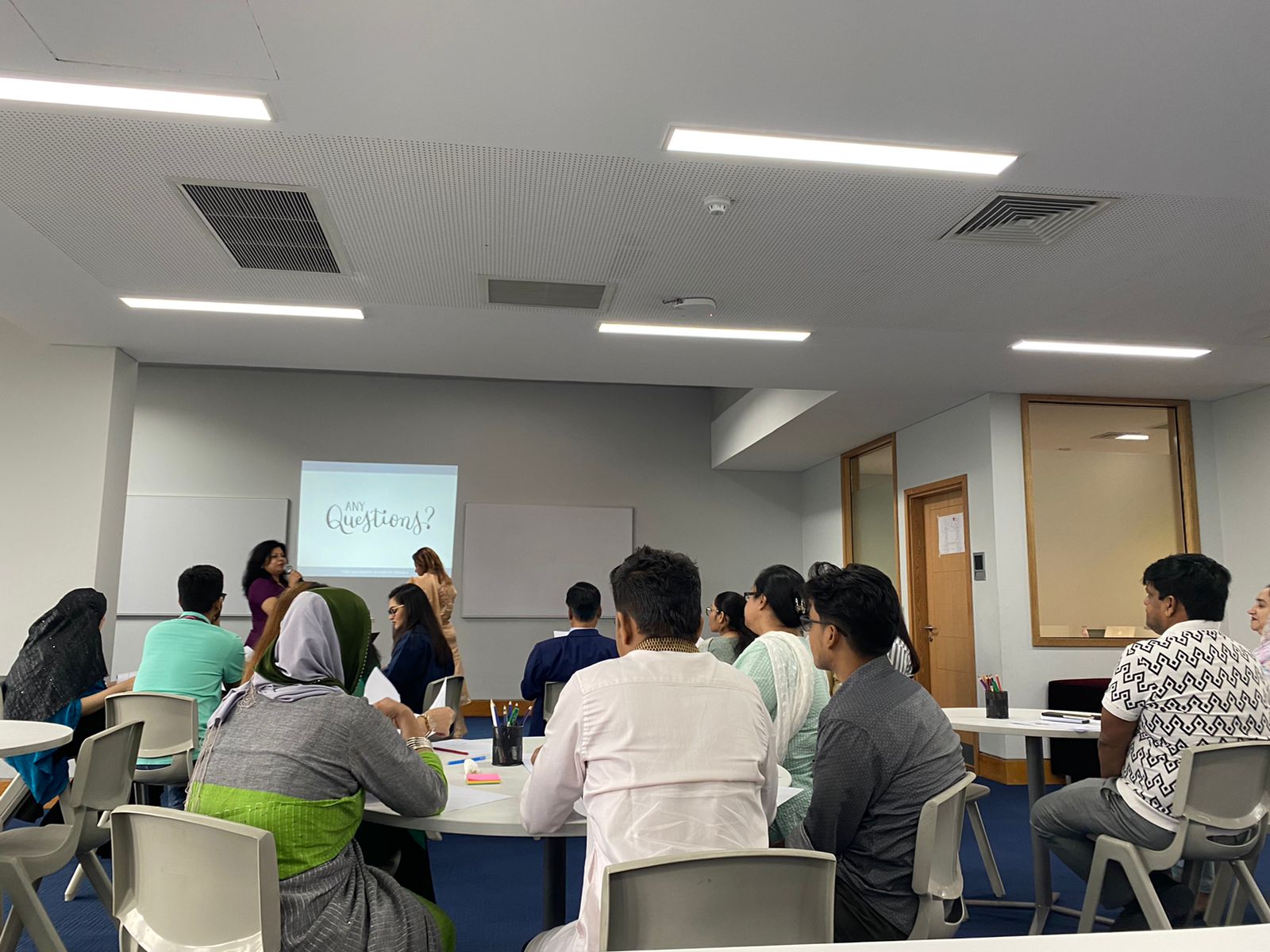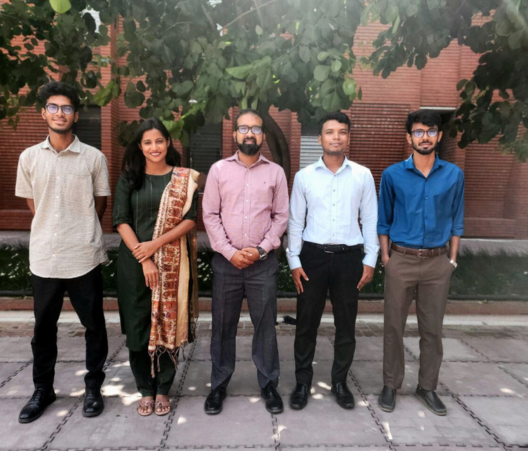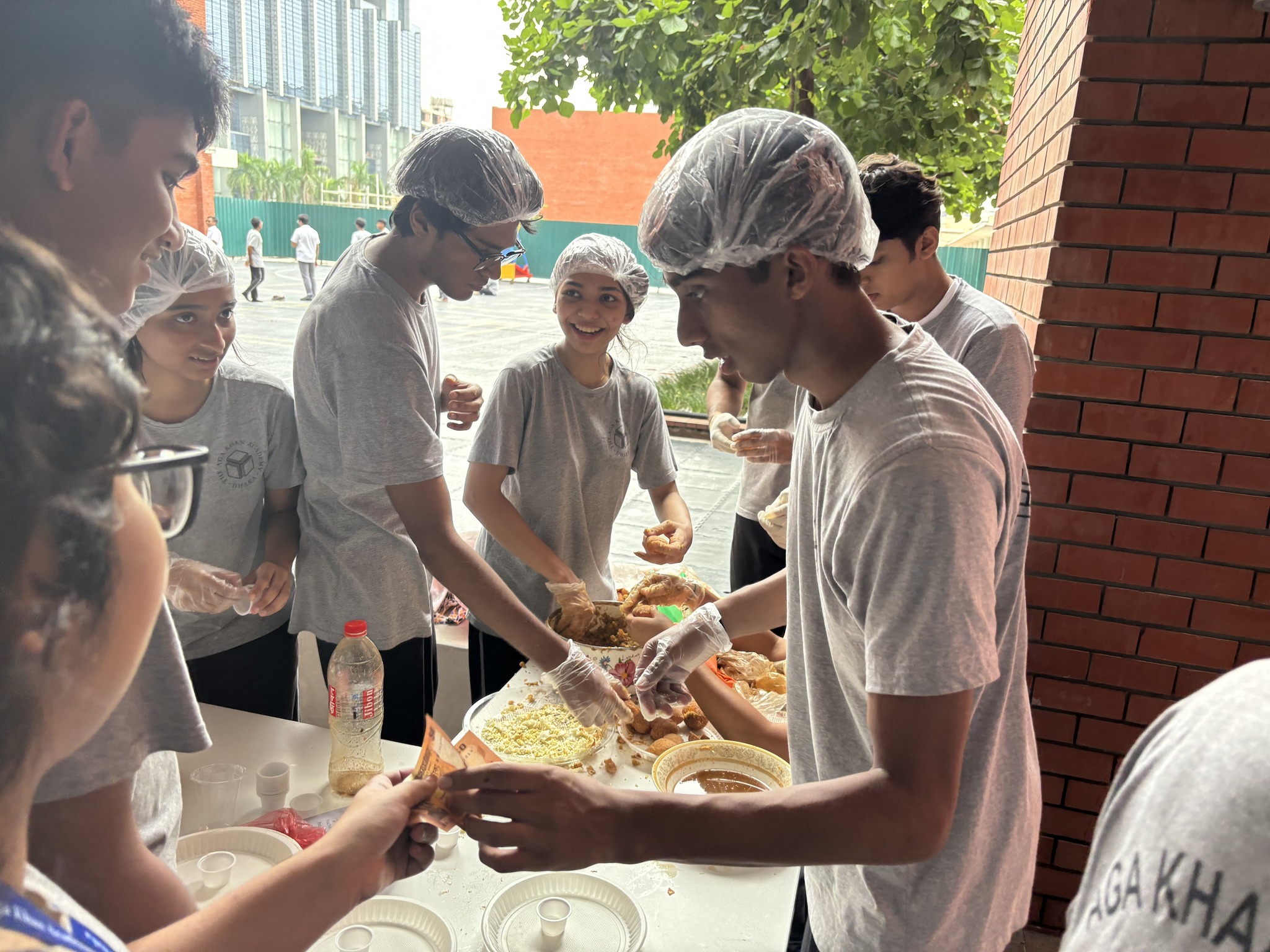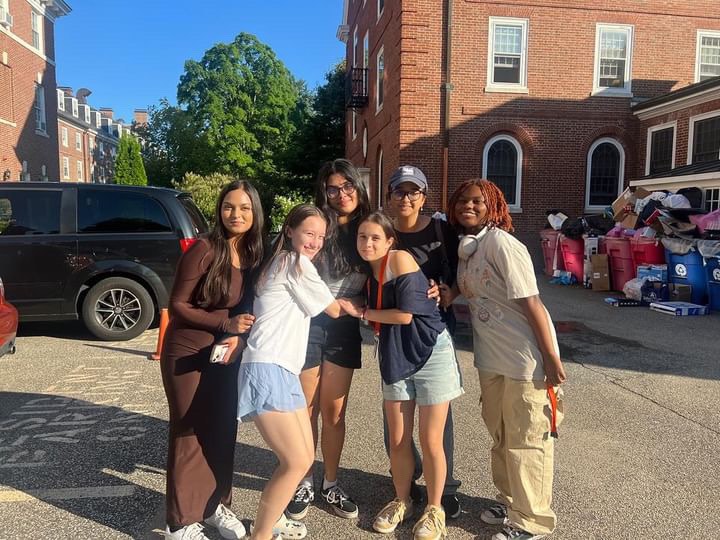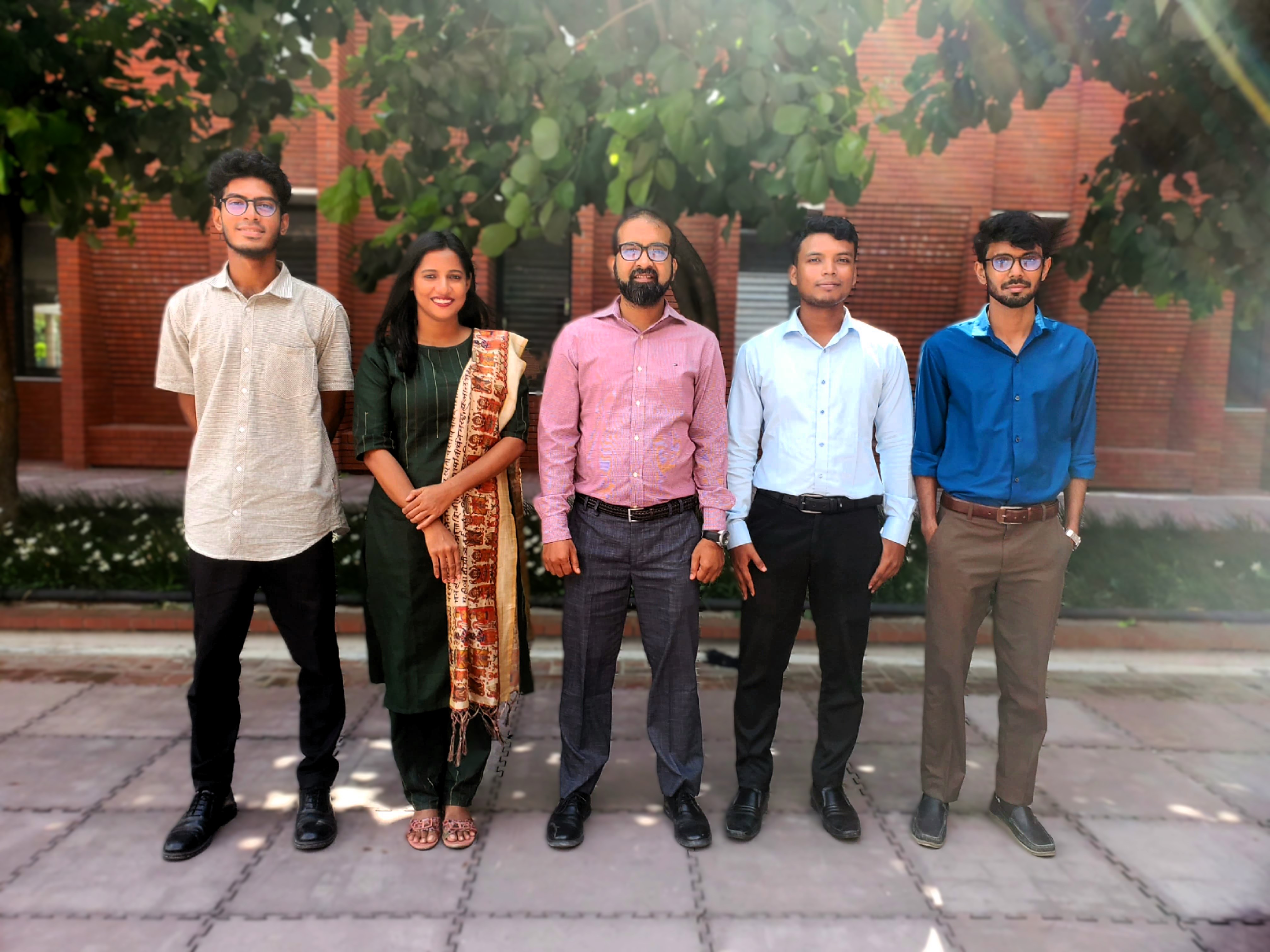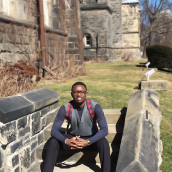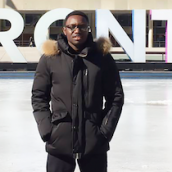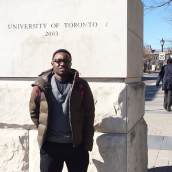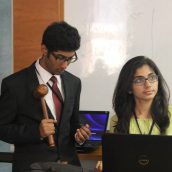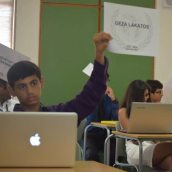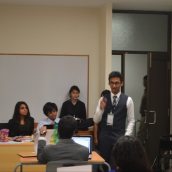Kelvin Njue (Class of 2015): Changing lives through education
“I believe that with education, people have the power to tackle and solve problems that affect their communities,” reflects Kelvin Njue, a graduate from the Aga Khan Academy Mombasa.
Upon graduating from the Academy in 2015, Kelvin was unsure if he would be able to pursue higher education until he received an email about the Ontario Tuition Waiver Programme from his university counsellor at the Academy.
“I intended to go to university straight after high school, but I needed to take a gap year so that I could find the means to attend university.”
During his gap year after graduating, he found out about the waiver programme.
“I applied as I knew acquiring a university education would change my life and would open up many other opportunities. Without the tuition waiver programme, I was going to struggle to attend an institution of higher education. It gave me hope and is something that has allowed me to access quality education.”
During his gap year, Kelvin interned at the Diamond Trust Bank in Nairobi, assisting clients with their day-to-day banking needs and providing customers with banking solutions.
Kelvin is currently enrolled in the faculty of arts and science at the University of Toronto, aspiring to complete the financial economics (specialist) programme with a minor in employment relations. Kelvin shares his love for economics.
“I have always had an interest in economics and have wanted to study it since high school. I wanted to find a job during my gap year that would allow me to apply concepts in economics. I felt that working in the bank aligned with both my academic and career aspirations.”
In his first year of university, Kelvin was enrolled in economics, mathematics and sociology courses, of which sociology has been his favourite.
“I am really enjoying looking at social inequality and social institutions and how society functions. It ties into economics really well and how society works in different ways.”
When Kelvin is not studying, he spends his time playing intramural volleyball, playing drums with students from his dormitory and exploring Toronto. For Kelvin, one of the biggest adjustments he had to deal with in his move to Canada was the weather.
“I have been away from my family for many years attending school, so that wasn’t as difficult for me. The hardest thing for me was getting adjusted to the weather in Canada.”
Kelvin has embraced the cold winters in Canada, learning to ice skate this past winter. Kelvin is hoping to become more involved with extracurricular activities offered by the University of Toronto next year.
“For next year, I would like to join the Business Board on the University of Toronto governing council board. The opportunity allows members to manage different business activities that take place around the university and I am very interested in this. I also want to explore different sports next year and would like to join intramural teams.”
One of Kelvin’s passions that began to cultivate throughout his time at the Academy is ensuring that all people have access to a quality education.
“Because I have had so much support from the Academy and different programmes that helped to finance my own academics, I would also like to give this opportunity to other children to get the same quality of education that I have been able to acquire. I want to start up an organisation or programme that can offer financial support or scholarships for students so that they can also attend school and get an education.”
During his time at the Academy, Kelvin was able to visit a slum in Nairobi and worked with students from Grades 1 to 6 for a six-week period, partnering with the Aga Khan Foundation to distribute reading materials, books, pencils and bags to students living in the community. Kelvin attributes his passion for wanting to make a change in the world to his time at the Academy.
“I think the Academy was able to give me self-confidence and motivated me to believe that I am an agent of change in making the world a better place and that I should always take every opportunity to make a change, no matter how big or small it is."
By Karina Hussein
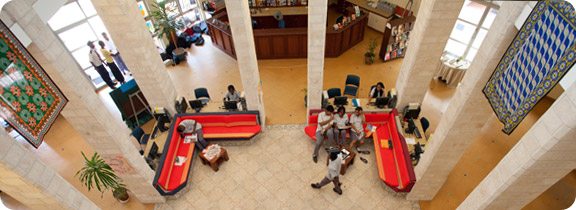
Subscribe to the Aga Khan Academies Newsletter
Titus Mutemi: A transformative educator
In 2015, Titus Mutemi joined the Aga Khan Academy Mombasa as part of the Teacher Preparation Programme (TPP), which aims to train teachers to become transformative International Baccalaureate educators in their communities. This became a turning point for Titus' career as he has since further developed his extensive knowledge and skills and forged a pluralistic view of the world.
For Titus, the priority has always been to ensure that students have the best learning experience. As a result, he reviewed and vertically aligned the mathematics programme to ensure that there were no existing gaps between mathematics knowledge, concepts and skills across all the grade levels in his role as a Homeroom teacher. This step brought about a significant improvement in the students' performance of the subject.
Titus’ proudest moment at the Academy was to see the students he taught from Year 1 successfully complete their Primary Years Programme (PYP) Exhibition. “It was my pride to see them demonstrate their understanding of the world around them; to make more informed choices and confidently express themselves. In their projects, they engaged in discussing issues that require deeper and critical thinking skills, in the effort to make the world a better place.”
As the new PYP Coordinator, Titus looks forward to collaborating with the teachers to continue to develop effective teaching practices, which will give students the best learning experiences. He also plans to continue supporting students to help them realise their full potential.
Expressing her pride and excitement for Titus, Junior School Principal Annia Dear said, “Titus has come into his new role in an exciting, albeit challenging time, but has without hesitation accepted and moved forward with all that his role demands. His knowledge and understanding of the needs of students and teachers at this crucial time has been invaluable. His calm nature, positive attitude and commitment to achieving ongoing success with students, parents and teachers is an asset.”
Having been a part of the Academy for over five years now, Titus appreciates being part of a supportive community that is united by a common mission and vision to develop the leaders of tomorrow. As he expresses, “There is no greater joy than nurturing young learners and witnessing them grow into more responsible, reflective and increasingly independent individuals.”
Rising Beyond: Inspiring Debate at the MUN
The simulation opened with an aesthetic dance performance showcasing culture that exists in great depth, as well as having Birad Yajnik speaking about global citizenship and leadership. The opening ceremony was followed by the first session of this simulation which consisted of students prepared for heavy debate.
The first session was preliminary and introduced the agendas and topics of debate of each committee to all the delegates. DISEC (Disarmament and International Security Committee) was engaged in debating over the international intervention in Civil Wars; ECOSOC (Economic and Social Council) debated over the impact of science, innovation and technology in achieving the millennium development goals; the JCC (Joint Crisis Committee) went back into history and debated over issues concerning World War II; and lastly, we had the Press Corps which interacted with each committee and their delegates of the conference, and got intensely rooted in the simulation, in order to provide for a very holistic experience of the whole event that took place.The second day still carried on with the same passion and enthusiasm. The second session started off with a morning crisis update, which proved to be quite a surprise to all the delegates. However, the debates in each committee over the crisis initiated slowly, and later escalated into deeper and effective discussions. The Press were involved in initiating Crisis in each committee which proved to be operative as it provoked heavy debates and discussions, further on the day. The second day proved to be an ecstatic and progressive one as it stimulated every mind, which resulted in exciting preparations for resolutions for the last day. The Delegate Dance was of course one of the highlights of the second day of the simulation.
Eventually came the final day of the simulation. The day proved to be brief but tense as delegates of each committee had to come up with effective resolutions according to their agendas. Every committee except for JCC (as it was historical) and DISEC succeeded in coming up with resolutions. Although DISEC failed to pass a resolution, it still instilled the sense of intrigue, passion and enthusiasm to overcome problems that are faced on the surface of the planet – each day and every moment.After having come up with a variety of resolutions, the time for closing the simulation had come. This time was much awaited by the delegates as it was also an award ceremony. Titles such as “Best Delegate”, “Outstanding Delegate”, “Best Photographer” and “Best Reporter” echoed the halls of the venue wherein the ceremony took place. After having a hearing of speeches of inspiration and accomplishment by the Security General and the Executive Board, as well as teachers and staff who functioned as a backbone to the simulation; and watching proud delegates walking towards their much deserving awards, came the time of saying a proud goodbye to the Aga Khan Academy, Hyderabad’s second edition of the Model United Nations conference. Now awaits the third edition which shall happen in Fall, 2015.
By Akanksha Dev
